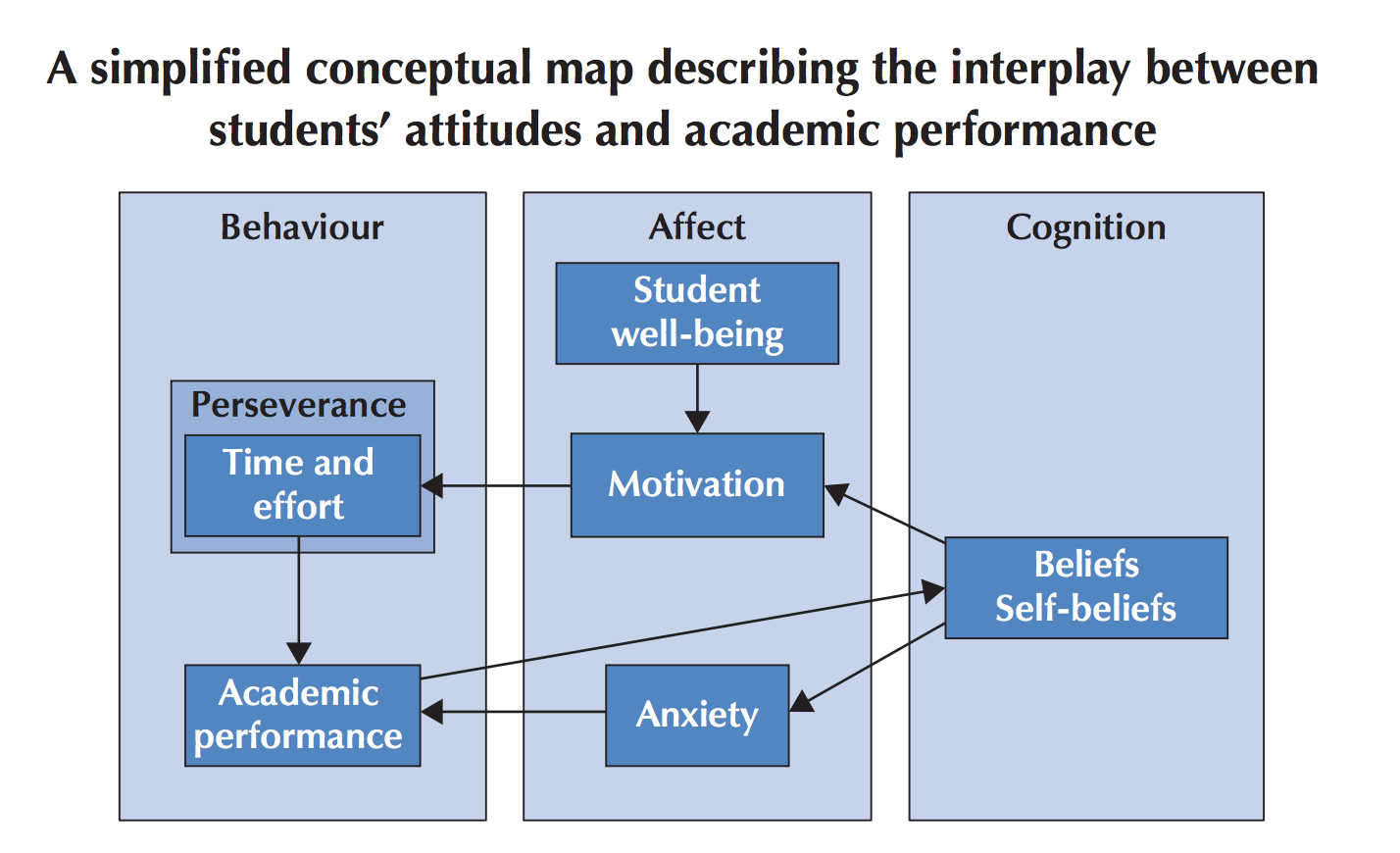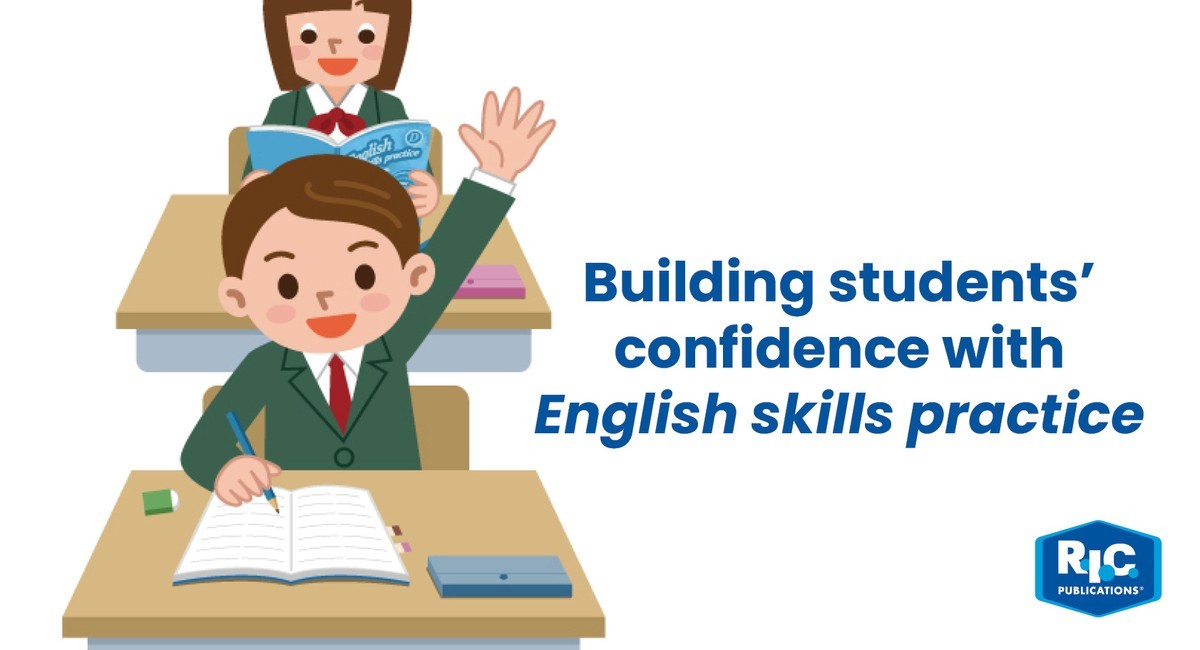- Thursday 10 October 2019
- 0 Comments
Have you ever come across students that never seem to have a good relationship with English skills? 'I’ll never be able to do this! Why should I even bother?' The self-doubt in their words is palpable. There is no denying that some students struggle with their English skills confidence, and breaking down the walls of self-doubt can be a significant roadblock for a teacher. So how important is confidence to a student and is it worth a teacher’s investment to grow it?
Confidence relates directly to academic success
Research suggests that student confidence relates directly to academic success. And it makes sense—how can a child achieve success if they are not confident in what they are doing?
A report presented by the Organisation for Economic Cooperation and Development (OECD), an international organization that works to build better policies for better lives, suggests two ways to improve student academic performance: invest more time and effort (behavioural) and/or reduce their levels of anxiety (affective). Easier said than done! However, the report goes on to explain that there is a cyclic process to achieving this. Improving students’ confidence in their abilities, knowledge and skills, and instilling in them the belief that academic success is the result of hard work, and not of innate and fixed traits (Dweck, 2006), can help reduce anxiety and foster motivation (Schunk and Pajares, 2009). Therefore, when a student is feeling motivated, it is more than likely to have a positive effect on their academic performance. The OECD summarised this cyclic process in a conceptual map pictured below:

Image source: PISA Report, Page 117
How can teachers boost confidence in their students?
A paper written on the historical perspective of self and self-belief in psychology and education has found that many students have difficulty in school, not because they are incapable of performing successfully, but because they are incapable of believing that they can perform successfully—they have learned to see themselves as incapable of handling academic work.
Understanding that students actually have the ability is key to transforming their view on their own learning capability. Confidence is the key to unlocking this ability.
Below are just six ways that teachers can help break down the walls of self-doubt and foster confidence in their students:
- Instill habits from day one
When students know what is expected of them daily, they will inevitably become more confident in those regular activities and gain more out of them. - Only give genuine praise
If you provide empty praise, they will not feel as motivated to push themselves harder. - Give them chances to succeed
Set realistic goals and don’t make tasks too easy or too challenging so that students will feel a sense of accomplishment when the goal is completed. - Use teaching strategies that provide an opportunity for equal participation
Students learn confidence from trying to answer questions and solve problems on their own.
- Use visuals
Visual cues can help students who may feel ‘stuck’ with their understanding of an activity or lesson. - Make all learning goal-oriented
Setting clear goals with your class will allow them to have a greater sense of accomplishment when they are achieved. - Self and peer assessment
Giving the responsibility of performing assessments to students themselves is a proven way to increase student understanding, ownership, enthusiasm for learning and, of course, confidence.
What are the telltale signs of a confident student?
You will know when a student has found their confidence as there will be a noticeable shift in their approach to their work, along with their general demeanor.
Some standard traits which embody a confident student include, but are not limited to:
- They are generally happier at school.
- They participate more in activities and whole-class discussion.
- They are more motivated in their work.
Confident students don’t necessarily make fewer mistakes; confidence is not linked to accuracy. It is all about their attitude and their newfound confidence when approaching tasks.
English skills practice is your key to breaking down the walls of self-doubt in your students.
See the change in your students by implementing the English skills practice workbook in your classroom.
English skills practice ticks all the boxes in developing confident English skills in students by:
- providing educators with the opportunity to instill habits from day one with the practice of English skills becoming a part of each student’s daily routine.
- empowering students by giving them chances to succeed through daily revision of grammar, writing, speaking and reading.
- enabling scope for equal participation of students who can learn confidence through answering questions and solving problems on their own.
- including visual cues to help student familiarity with their daily activities, lessening the potential of them becoming ‘stuck’ with their understanding.
- providing opportunities for creating goal-oriented tasks in the classroom, allowing students to have a greater sense of accomplishment when achieved.
- facilitating opportunities for self and peer assessment when marking daily activities.
